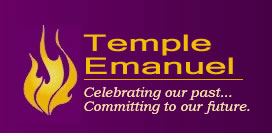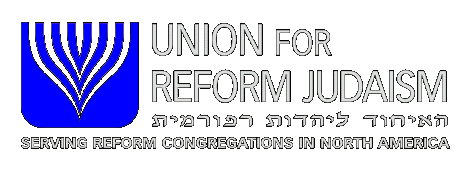|
Pesach is a special time at Temple Emanuel. We share a beautiful second night seder, second day Passover service, and hold a meaningful Yizkor on the last night. Please join us for these truly memorable worship experiences.
Did you know that Passover is the most celebrated of the Jewish holidays? This is true for both observant as well as secular and totally unaffiliated Jews.
Passover begins on the 15th day of the Jewish month of Nissan. It is the first of the three major festivals with both historical and agricultural significance (the other two are Shavu’ot and Sukkot). Agriculturally, it represents the beginning of the harvest season in Israel, but little attention is paid to this aspect of the holiday.
The primary observances of Passover are related to the Exodus from Egypt after 400 years of slavery. This story is told in Exodus, Chapter 1-15. Many of the Passover observances are instituted in Chapters 12-15.
The name “Passover” refers to the fact that God “passed over” the houses of the Jews when he was slaying the firstborn of Egypt. In Hebrew, it is known as Pesach which is based on the Hebrew root meaning “pass over”. The holiday is also referred to as Chag he-Aviv (the Spring Festival), Chag ha-Matzot (the Festival of Matzahs), and Zeman Herutenu (the Time of Our Freedom).
Probably the most significant observance related to Passover involves the removal of chametz (leavened foods) from our homes. This commemorates the fact that the Jews leaving Egypt were in a hurry, and did not have time to let their bread rise. It is also a symbolic way of removing the “puffiness” (arrogance, pride) from our souls.
Chametz includes anything made from the five major grains (wheat, rye, barley, oats and spelt) that have not been completely cooked within 18 minutes after coming into contact with water. Traditional Jews of Ashkenazic background also avoid rice, corn, peanuts, and legumes (beans) as if they were chametz. All of these items have been used to make bread, thus use of them was prohibited to avoid any confusion. Such additional items are referred to as “kitniyos.” We may not eat chametz during Passover; we are not supposed to even own it or derive benefit from it. All chametz, including utensils used to cook chametz, must either be disposed of or sold to a non-Jew.
The process of cleaning the home of all chametz in preparation for Passover can be an enormous task. Some people spend several days scrubbing everything down, even going over the edges of the stove and fridge with a toothpick and a Q-Tip.
The grain product we eat during Passover is called matzah. Matzah is unleavened bread, made simply from flour and water and cooked very quickly. This is the bread that the Jews made for their flight from Egypt. We have come up with many inventive ways to use matzah; it is available in a variety of textures for cooking: matzah flour (finely ground), matzah meal (coarsely ground), matzah farfel (little chunks, used as a noodle substitute), and full-sized matzahs (about 10 inches square, a bread substitute).
The day before Passover is the fast of the firstborn, a minor fast for all firstborn males, commemorating the fact that the firstborn Jewish males in Egypt were not killed during the final plague.
On the first night of Passover (first two nights for traditional Jews outside Israel), we have a special family meal filled with ritual to remind us of the significance of the holiday. This meal is called a seder, from a Hebrew root word meaning “order.” (It is the same root from which we derive the word “siddur”- prayer book). This means there is a specific set of information that must be covered in a specific order.
Passover lasts for seven days in Israel and for Reform Jews; others living in the Diaspora celebrate for eight days. The first and last days of the holiday (first two and last two outside of Israel) are days on which no work is permitted. Work is permitted on the intermediate days. These intermediate days on which work is permitted are referred to as Chol Ha-Mo’ed, as are the intermediate days of Sukkot.
|






